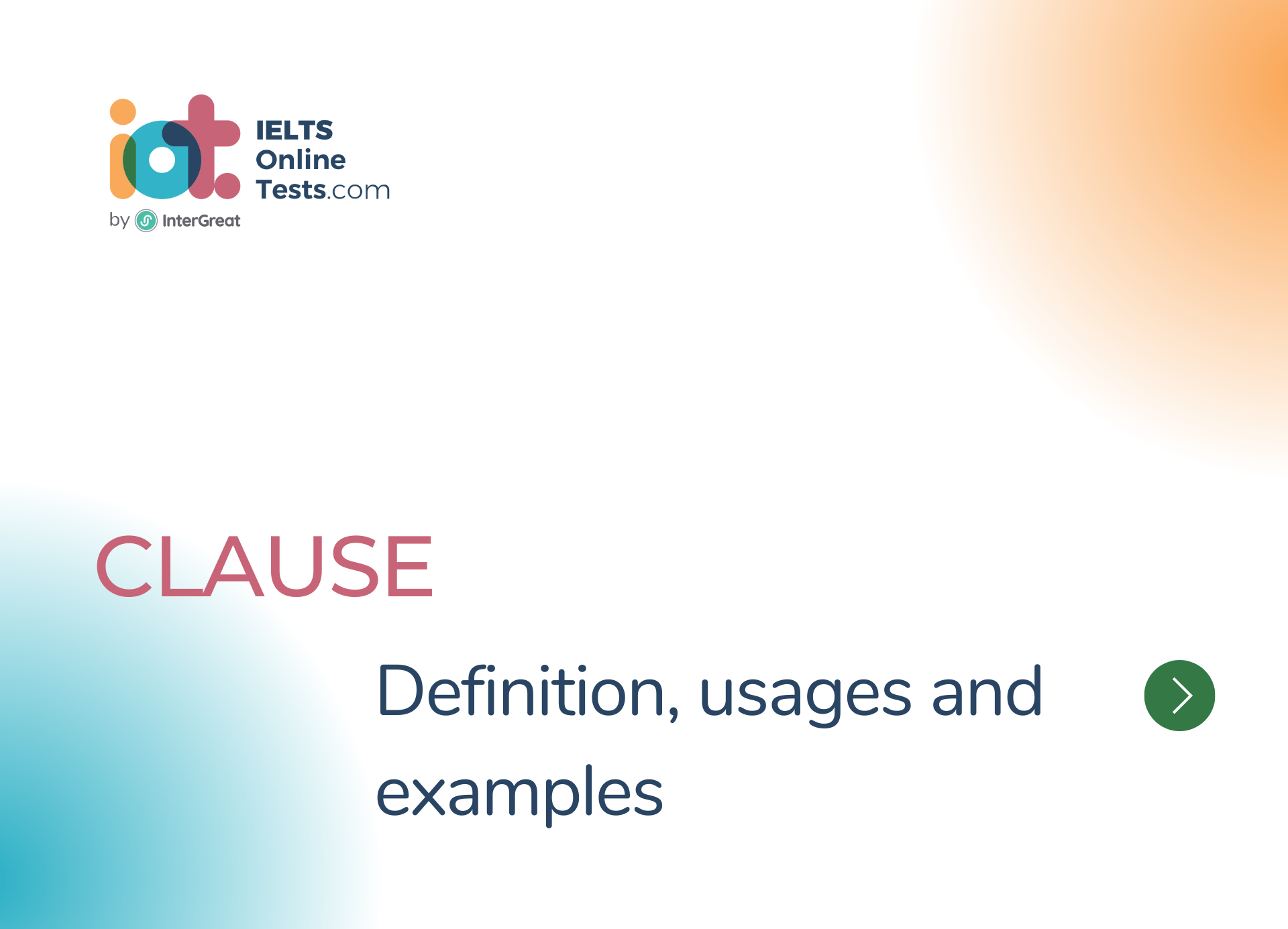
Clause definition, usages and examples
In English grammar, a clause is a group of words that includes a subject and a predicate. It can function as a sentence on its own or be part of a larger sentence. Clauses play a crucial role in constructing meaningful and grammatically correct sentences.
Here's more information about clauses:
- An independent clause, also known as a main clause, can stand alone as a complete sentence because it expresses a complete thought.
- It contains a subject and a predicate and does not rely on any other clause to convey its meaning.
- Examples:
- "She sings beautifully." (subject: "She"; predicate: "sings beautifully")
- "I studied for the exam." (subject: "I"; predicate: "studied for the exam")
- A dependent clause, also called a subordinate clause, does not express a complete thought and cannot stand alone as a sentence.
- It relies on an independent clause to complete its meaning and often functions as a noun, adjective, or adverb within the sentence.
- Examples:
- "Because it was raining, we stayed indoors." (dependent clause: "Because it was raining")
- "She ate dinner after she finished her work." (dependent clause: "after she finished her work")
- Noun Clauses: These function as the subject or object within a sentence. Example: "What he said surprised me."
- Adjective Clauses: These modify nouns or pronouns. Example: "The book that she is reading is interesting."
- Adverb Clauses: These modify verbs, adjectives, or other adverbs and provide information on time, place, manner, cause, or condition. Example: "He ran faster to catch the bus."
- Relative clauses are a type of dependent clause that begin with relative pronouns (e.g., who, whom, whose, which, that).
- They provide additional information about a noun or pronoun in the main clause.
- Examples:
- "The girl who won the race is my friend."
- "I bought the book that you recommended."
Subordinating Conjunctions:
- Dependent clauses are often introduced by subordinating conjunctions (e.g., because, if, when, although) that establish a relationship between the dependent clause and the independent clause.
- Examples:
- "I will go to the party if I finish my work."
- "He was tired because he stayed up late."
Understanding clauses and their types helps in constructing clear and grammatically correct sentences. Independent clauses express complete thoughts, while dependent clauses rely on other clauses for their meaning. By using different types of clauses, you can convey complex ideas, provide additional information, and create well-structured sentences.




